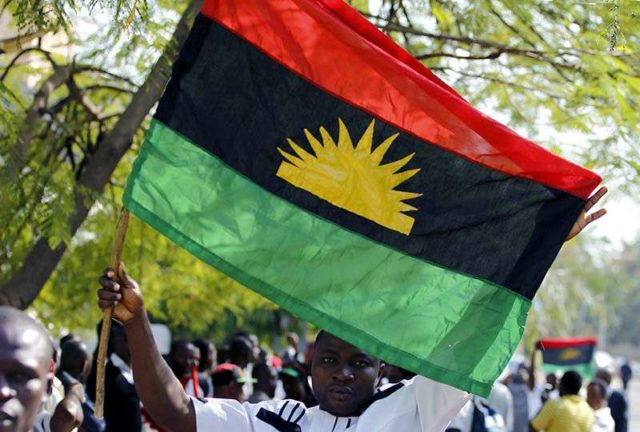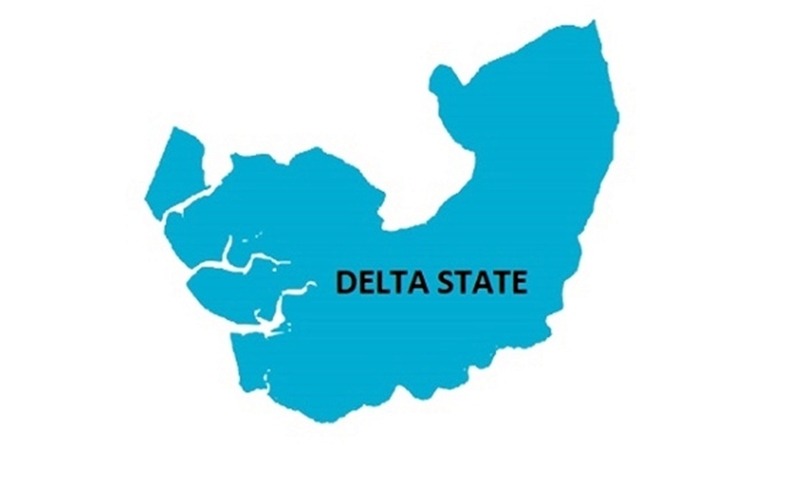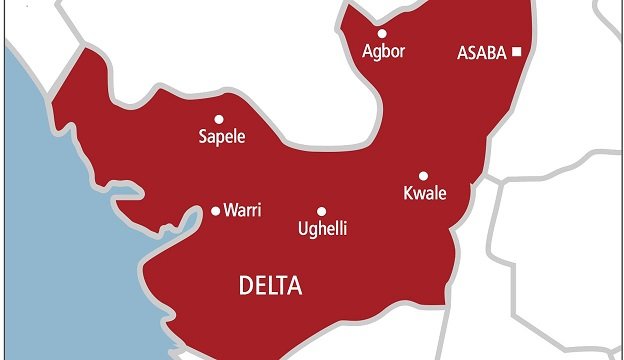Featured
Pro-Biafran Protests: Reasons IPOB Youth Leaders Escape From Nigeria Emerge

…As Police Declare Youth Coordinators Wanted
By Chioma Nweke
The Anambra Police Command has declared wanted some leaders of Indigenous People of Biafra(IPOB).
This follows series of protests by thousands of youths of the IPOB particularly the bloody clash which led to the burning down of public properties on December 2, 2015, in Onitsha, Anambra State.
Those youths leaders declared wanted by the police in the state include: Robinson Ikpinaye from Asaba, Delta State; Obinna Obiozor from Onitsha, Anambra State; Emeka Moses from Udi in Enugu State, a youth coordinator; Ejike Nnabuenyi from Abakaliki in Ebonyi State, and Harrison Ofoma from Owerri, Imo State.
Dr Uwam Asika, an independent investigative journalist and researcher who has been following the situation, revealed that pro-Biafran youths escape from Nigeria was due to fear and intimidation by the Federal Government of Nigeria.
The investigative journalist who is a member of Institute of Peace and Conflict Resolution, said this exodus by the IPOB youths should be a cause of concern to government.
According to Uwem, using fire arms to disperse unarmed IPOB youths is also the greatest error of government.
He stated that it has become a growing phenomenon that anytime youths protested for any reason, not just pro-Biafra protesters, government disperses the protesters.
He added that sending armed military and police to tear gas protesters and even throw grenades into crowds of unarmed youths and shoot sporadically, killing some of the protesters in the process shouldn’t be encouraged.
He noted that this was the reason the irate youths burnt down structures and destroyed properties in frustration and anger over dead loved ones, fueled by police brutality and gun battle.
Uwem described the development as most undemocratic, adding that even in the worst form of military dictatorship, the junta was more cautious in handling protests than the civilian rulers.
Dr. Uwem advised government to be more tolerant of the pro-Biafran agitators whom he said were fighting to secede from Nigeria.
“The entire people of Nigeria are protesting bad governance in one form or the other; the pro-Biafran agitation started even before it got this bad economically and these people are still insisting on being separate from Nigeria and for a reason.
“It’s either you let them go or you engage them in meaningful dialogue on the way forward,” he stated.
Meanwhile, Mr Emeka Moses, one of the youths who was fingered in the protest has expressed fear that his life and that others declared wanted maybe under serious threat.
Moses, whose younger brother, Vivian Emeka, was killed in the protest where they demanded for the release their leader, Mazi Nnamdi Kanu, lamented that after years of arrest by the Nigerian government remains under custody till date.
Civil Society Organizations in Nigeria have, however, continued to advise the Federal government to treat protesters with humane and obey fundamental rights of the citizens.
Featured
Mother, Two Children Hospitalized As Urhobo-Itsekiri Crisis Claims Over 80 In Agbassa

A midnight raid by armed militants, believed to be of Itsekiri origin, has left the Urhobo Agbassa community in Warri, Delta State, shattered, with local reports estimating the death toll at over 80.
The attack, which began late on August 17 and stretched into the early hours of August 18, was marked by widespread arson, gunfire, and brutal killings.
Survivors say the assailants wielded cutlasses, guns, and other dangerous weapons, setting homes ablaze and slaughtering those unable to escape in what authorities suspect is an escalation of the long-standing ethnic conflict.
In addition to the more than 80 feared dead, dozens were injured, and entire families displaced. “They destroyed everything,” one eyewitness said. “Our community has been reduced to ashes.”
READ ALSO:Police Arrest Over 80 Suspects, Recover Guns In Delta
The profound human cost is embodied by Ms. Folorunso Edijana Patience, a resident of London Opi Street. She was at home with her children, Ayomide Covenant and Omolade Precious, when the militants struck.
In a desperate bid to save her family, Patience fled into the thick forest along the Warri–Sapele Road. “I just ran with my children in the dark. We didn’t know if we would survive,” she recounted to local authorities. By dawn, Patience and her children emerged from the forest, bloodied and wounded. They were rushed to a nearby hospital, where doctors described their condition as critical.
Her trauma deepened when she learned that her elder brother, Oghenejakpo Daniel, and younger brother, Oghenejakpo Victor, were killed in the massacre.
“This family has been devastated,” one hospital staff member said. “She escaped with her children, but she lost her brothers, her home, and her peace.”
READ ALSO:Police Arrest Two Suspected Armed Robbers In Delta, Recover Arms, Ammunition, Others
Doctors at the initial hospital warned that the injuries sustained by Patience and her children could worsen without advanced treatment.
The family was later transferred to the Specialist Hospital in Asaba, where their condition remains serious.
The Delta State Commissioner of Police led a delegation to the hospital, acknowledging the severity of the survivors’ situation.
Security operatives from both the Nigerian Police and the Army have since launched joint patrols in the area.
READ ALSO:Police Arrest Suspected Robber, Three Others With Firearm In Delta
The attack has drawn condemnation from human rights groups and diaspora organizations. Amnesty International described the violence as “barbaric and indiscriminate,” while international outlets, including CNN and the BBC, have highlighted the massacre as part of Nigeria’s deepening communal conflicts.
President Bola Ahmed Tinubu, in a press statement, called the killings “an assault on humanity” and vowed that the perpetrators would be brought to justice.
For Ms. Patience, however, justice feels distant. With her children injured and her brothers buried in mass graves, she is left with the same question haunting many in Urhobo Agbassa: where do we go from here?
Featured
Survivor Narrates Narrow Escape As 87 Killed In Agbassa Mascara

The Urhobo Agbassa community in Warri South Local Government Area of Delta State has been plunged into mourning after a night of unimaginable horror left over 87 people dead and dozens more missing.
Armed militants, widely believed to be of Itsekiri origin, launched a coordinated midnight attack that reduced homes to ashes and shattered countless lives.
Survivors described the attack as a scene from hell — gunshots, screams, and flames lighting up the night sky.
“It was like the world ended in a single night,” one police officer told reporters.
“There were bodies everywhere — children among them — burned beyond recognition.”
Among those who narrowly escaped death is Mr. Asidje Akporuaro, a 34-year-old Urhobo man whose life turned into a nightmare simply because he refused to join the militants.
For months, Akporuaro said he had been pressured to enlist in the militants’ campaign for control of oil-rich territories around Warri.
According to him, when he resisted, the threats began.
“They told me I knew too much about them,” he recounted in a trembling voice. “They said if I didn’t join, they would kill me — and they meant it.”
READ ALSO:Police Arrest Over 80 Suspects, Recover Guns In Delta
His fear became reality on the night of August 15, 2025 when the attackers stormed Agbassa, targeting his home specifically.
“They came straight for my house,” he said. “They weren’t just attacking the community — they came to finish me,” he narrated.
With only seconds to spare, Akporuaro grabbed his two eldest children — Okeoghene and David — and fled into the darkness.
They hid near a riverbank, listening to the crack of gunfire and the screams of neighbors being slaughtered.
Hours later, they were found, beaten severely, and left for dead.
An eyewitness described the scene:
“I saw him lying on the ground, soaked in blood. They had beaten him and left him to die,” he said. “I shouted, but there was no help.”
Akporuaro was rushed to a local clinic before being transferred to the Delta State University Teaching Hospital, where doctors confirmed he had sustained severe internal injuries from the assault. He remains in critical condition.
READ ALSO:Police Arrest Suspected Illicit Drugs Dealer In Delta
A doctor at the hospital, who asked not to be named, said:
“His case is one of the worst we’ve seen.”
Since the attack, Mr. Akporuaro has gone into hiding. His home was burned to the ground, and his family now lives in constant fear.
“I don’t have a place to stay,” he said. “Every night, I hide in different places because I know they are still looking for me. If they find me, they will kill me.”
He added, “I can’t even go to the police station — I don’t know who to trust. My only wish is for my family to survive this.”
Local sources confirmed that several residents who had previously refused to cooperate with the militants have either disappeared or been killed. Security forces say they are investigating the allegations but admit that the terrain and scale of the violence have made it difficult to track the attackers.
The Agbassa Massacre has sparked widespread outrage. Human rights organizations, including Amnesty International, condemned the killings as “a grotesque violation of human dignity.” Protests have erupted in London and Toronto, where diaspora groups demanded accountability from Nigerian authorities.
READ ALSO:Police Arrest Suspected Illicit Drugs Dealer In Delta
President Bola Ahmed Tinubu, in a statement from Abuja, described the killings as “a senseless act of terror” and ordered the deployment of additional security personnel to Delta State. Yet, for survivors like Akporuaro, hope remains faint.
This latest atrocity has revived painful memories of the Okuama Massacre of 2024, where 17 soldiers and more than 100 civilians were killed in another oil-linked conflict. A recent documentary by News Central TV, titled “One Year After the Okuama Tragedy: Where Do Survivors Stand?”, questioned how many displaced families have truly found safety.
For Mr. Akporuaro, the question feels deeply personal.
“I lost everything — my house, my peace,” he said quietly. “Now I live every day just trying not to die.”
As aid agencies struggle to reach the affected areas, the Agbassa community remains a ghost town — empty streets, burnt roofs, and the lingering smell of smoke.
“This community has been broken,” said one displaced elder. “We have nowhere left to go. Only God can help us now.”
Featured
Over 200 Killed In Yelewata Massacre As Survivors Grapple With Fear, Loss, And Trauma

The village of Yelewata in Guma Local Government Area of Benue State, has become the latest site of mass tragedy in Nigeria following a coordinated overnight attack by suspected armed herdsmen that left more than 200 people dead and dozens more injured and displaced.
The attack, which took place in the early hours of June 14, targeted Internally Displaced Persons (IDPs) shelters and residential homes in the area. Eyewitnesses account say the assailants stormed the community from multiple entry points, torching homes, opening fire on sleeping residents, and trapping many inside burning buildings.
Local security volunteers described the scene as “a war zone,” with charred bodies recovered from the remains of burnt homes and many still unaccounted for. Entire families were wiped out in what locals now refer to as “a night of hell.”
The Benue State Government has confirmed the killings and has called for increased federal security presence in the region. President Bola Ahmed Tinubu, during a visit to Benue on June 16, condemned the killings as “senseless bloodletting” and promised that “those responsible will be brought to justice.” The attack has since drawn sharp condemnation from Amnesty International, local civil society groups, and human rights observers.
READ ALSO: Benue Killings: I Expect Arrests, Tinubu Directs Security Chiefs
– A Family Torn Apart, Twice –
Among the survivors is Olumide Michael Makinde, a 39-year-old father of two who says this is the second time he has narrowly escaped death in Nigeria.
Makinde was living in Owo, Ondo State, in 2022 when St. Francis Xavier Catholic Church was attacked during Pentecost Sunday Mass. Over 50 worshippers were killed in the Owo church massacre, including his stepfather, Mr. Maxmillian Ogunleye. His mother was among the dozens injured and left permanently incapacitated.
“The whole town was shaking. I lost my father. My mother never walked again after that,” Makinde recalled.
Fearing for their safety, Makinde, his pregnant wife, and their young son fled Owo in the aftermath of the attack and settled in Yelewata, where they hoped to start over. The family began farming, enrolled their first child in school, and welcomed a new baby girl in January 2023. For a while, peace returned, until the massacre of June 14 changed everything.
Makinde recounted the horrifying night his family was torn apart once again.
“We were sleeping when we heard gunshots. Everything was on fire. People were screaming. I grabbed my son and ran into the bush. My wife, holding our baby, ran in another direction,” he said.
Hours later, at dawn, he found his wife bleeding and crying, lying in a pool of blood. She had been raped by two attackers while hiding in the bush.
READ ALSO: VIDEO: ‘I Lost 20 Family Members In Benue Attacks,’ Survivor Recounts Ordeal
“She survived only because she was holding our baby,” he said, visibly shaken.
Makinde rushed her to a nearby hospital while the fires still raged in Yelewata. When he returned to what used to be their shelter, it was gone. So was nearly every home in the area. The camp had been burned to ashes, entire families reduced to nothing but smoke and silence.
– No Place Left to Run –
Today, the Makinde family, like many others in Yelewata, is devastated, emotionally, physically, and psychologically. The trauma of surviving two massacres has left deep scars.
“We have nowhere to go. We’ve run twice. We’ve lost everything. My wife… she can’t even talk about what happened,” Makinde said, holding back tears.
Their belongings, livelihood, and sense of peace have all been lost, first in Owo, now in Benue. More than anything, the family says they live in fear. The fear of what might come next. The fear of being forgotten. The fear of being attacked again.
“People think we’re just IDPs,” he added. “But we are people who have been hunted twice.”
For survivors like the Makindes, the massacre at Yelewata is more than just another tragic headline. It is a daily reminder of how fragile life has become in many parts of Nigeria, where homes are turned to graves, and families carry trauma they may never fully recover from.

 News4 days ago
News4 days agoBREAKING: Anthony Joshua Involved In Road Accident

 News5 days ago
News5 days agoEx-Edo Gov Obaseki Reacts As His Cousin Is Beaten, Stripped

 Politics4 days ago
Politics4 days agoYou’re Not 001 – Wike Rubbishes Claims Of Fubara Being APC Leader In Rivers

 Metro5 days ago
Metro5 days agoObaseki Beaten, Stripped In Edo

 Politics4 days ago
Politics4 days agoWike Speaks On Defecting To APC

 Politics4 days ago
Politics4 days agoJUST IN: INEC Excludes PDP From Ekiti Governorship Election

 Politics4 days ago
Politics4 days agoGo To Hell, You Didn’t Pay My School Fees – Wike Hits Seyi Makinde

 News4 days ago
News4 days agoDoris Ogala: How Pastor Chris Knelt Before Church, Begged For Forgiveness [Video]

 News4 days ago
News4 days agoNAF Neutralizes Bandits At Turba Hill, Kachalla Dogo Sule Camps

 News3 days ago
News3 days agoNigerian Army Finally Reveals Details Of US Military-led Airstrikes In Sokoto
































